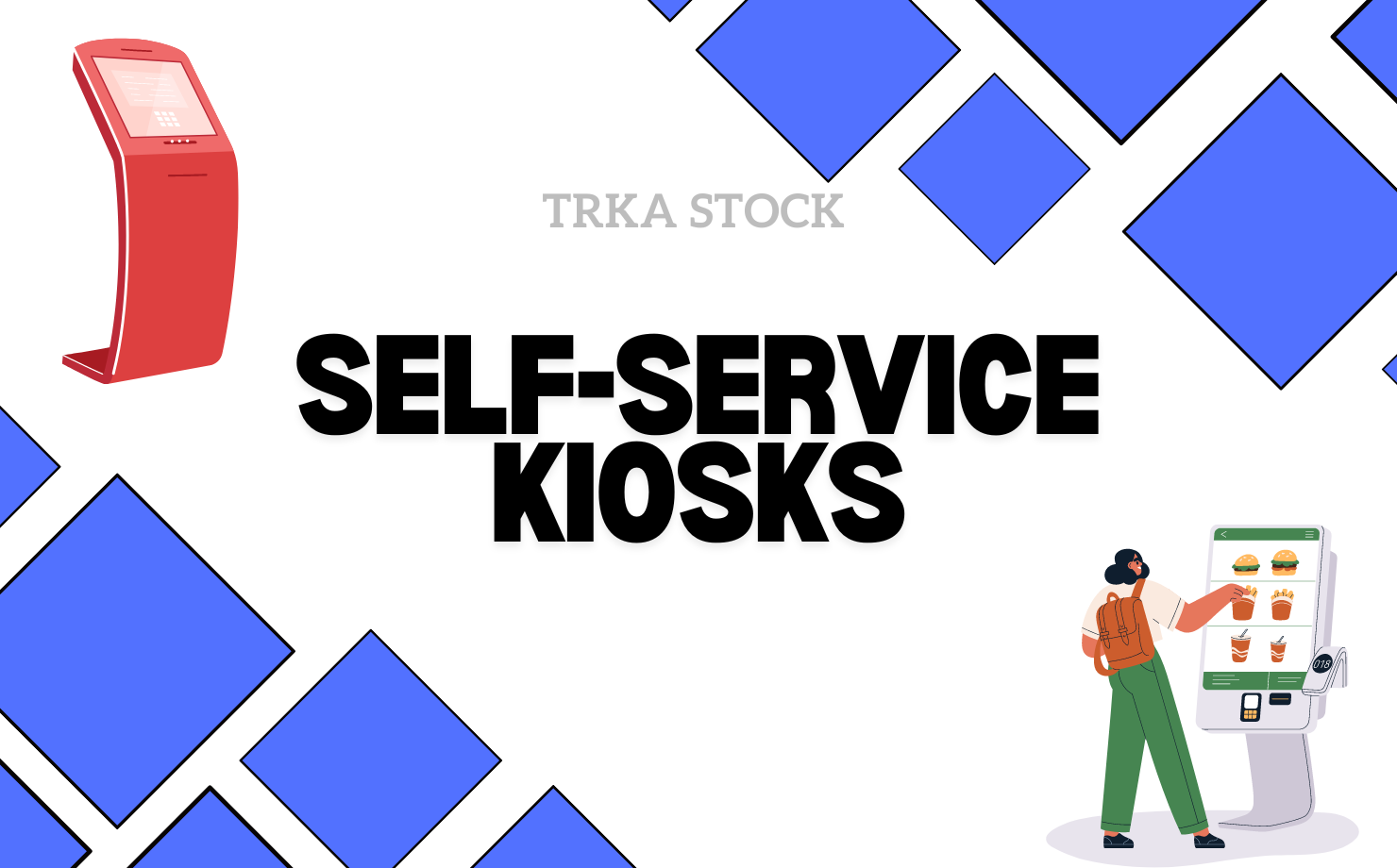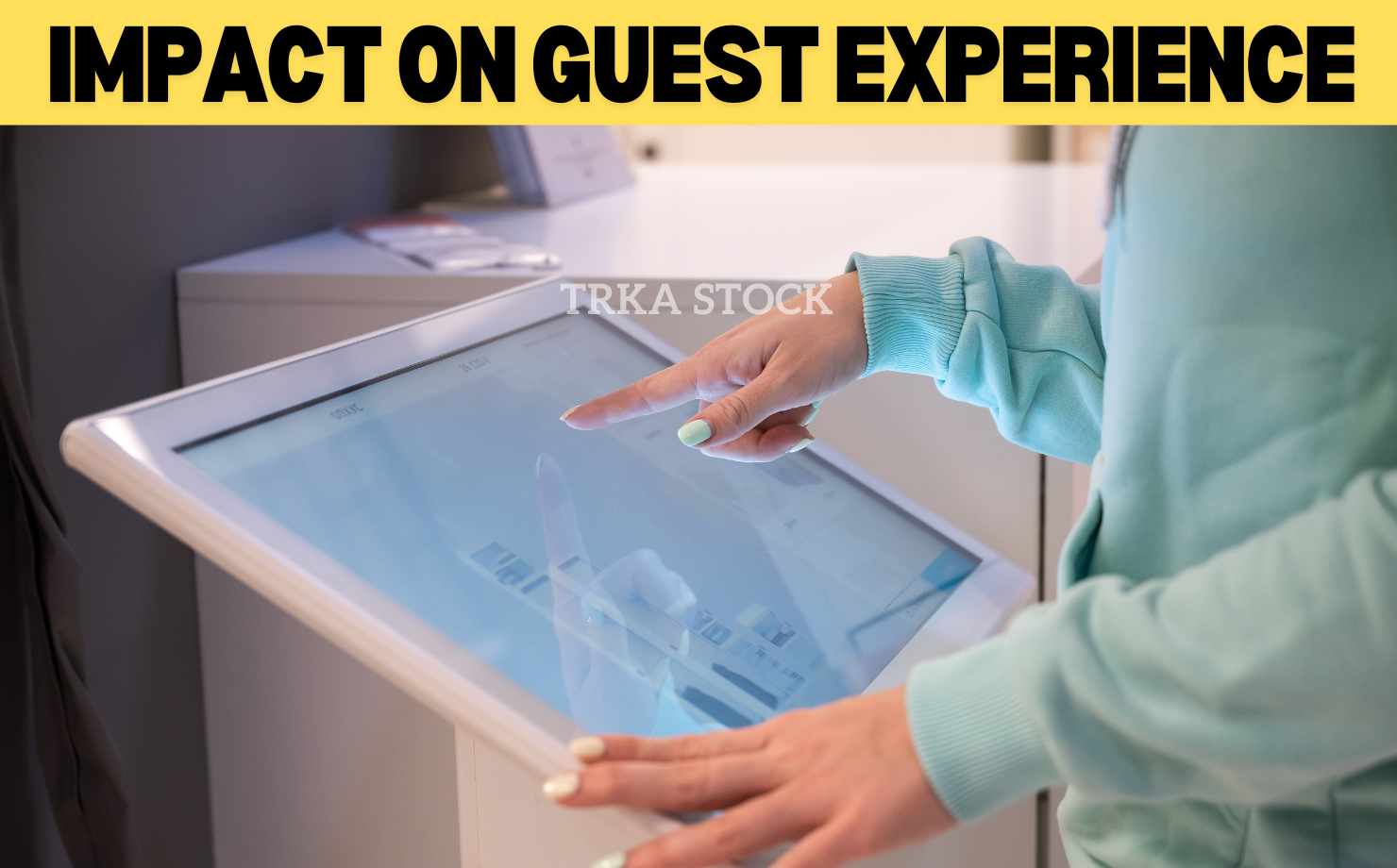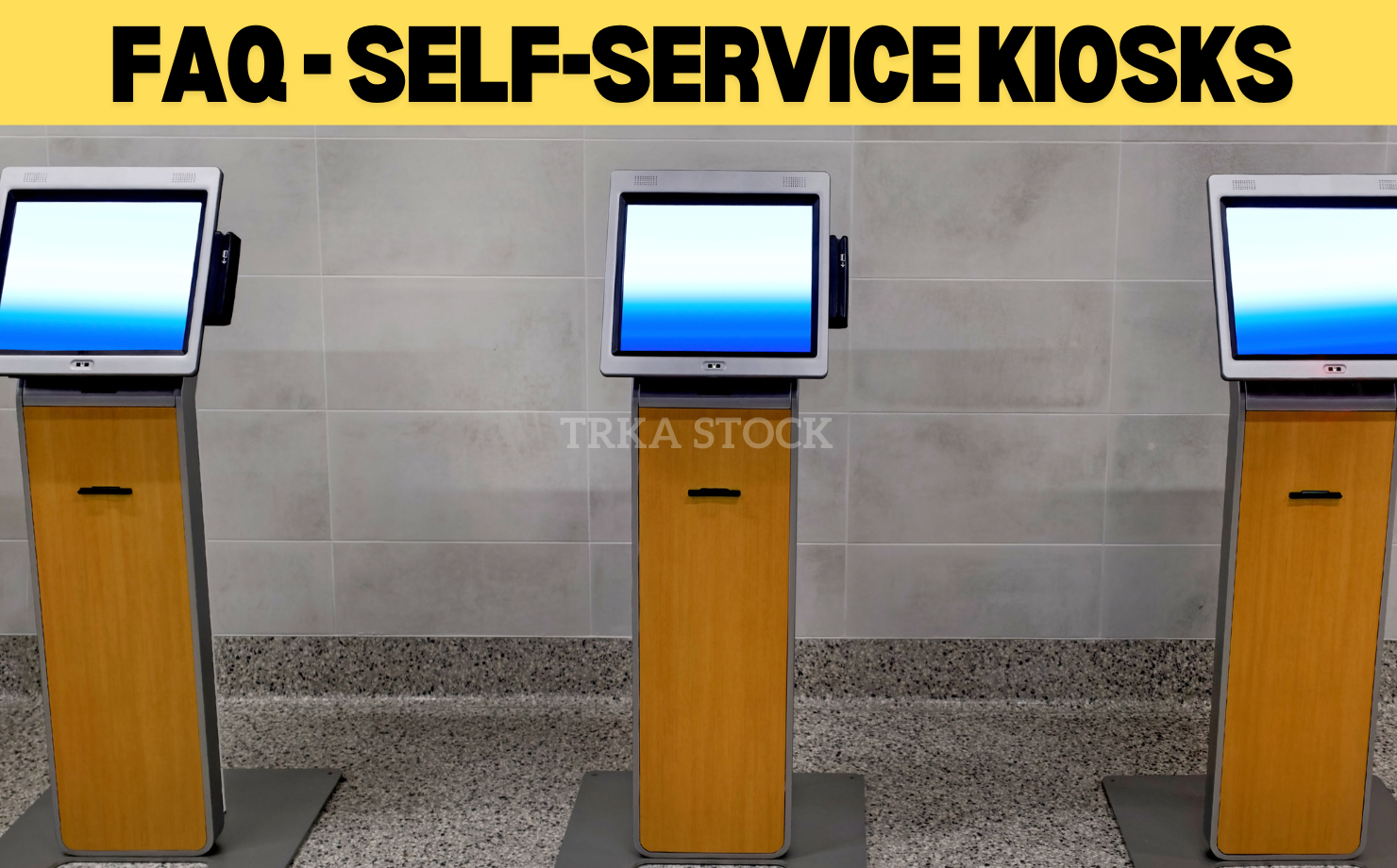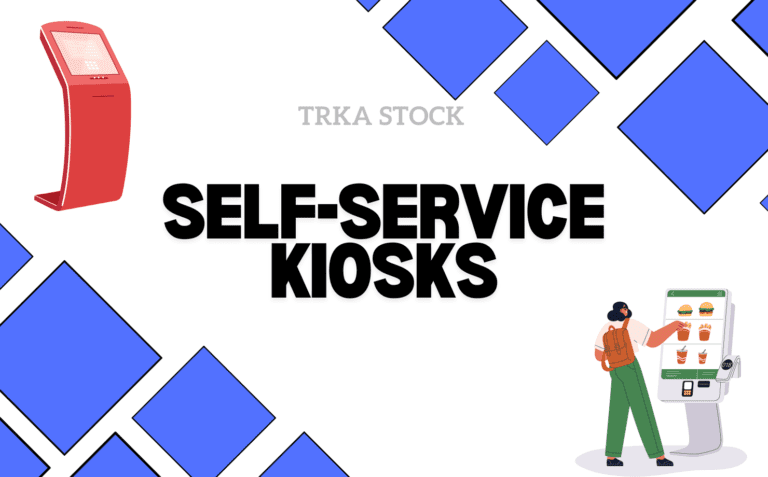Summary – Self-Service Kiosks
Self-service kiosks are transforming Hotels Experiences by offering efficient services such as check-in, ticketing, and payment processing. These kiosks reduce wait times, provide 24/7 access, and boost customer satisfaction. Hotels benefit from improved operational efficiency, enhancing both guest experiences and overall business success.
How Self-Service Kiosks Enhance Guest Experiences in Hotels
Hotels Experiences Key Takeaways:
- Self-service kiosks improve efficiency and enhance customer satisfaction in the hotel industry.
- They provide essential services like check-in/check-out, ticketing, and information.
- Integrating kiosks helps reduce wait times and operational costs.
- Customer privacy and data security are critical considerations for successful implementation.

Introduction to Self-Service Kiosks
Self-service kiosks are transforming the hotel industry by providing convenient and efficient solutions for guests. These touch-screen terminals enable guests to perform various tasks independently, thereby reducing the need for face-to-face interactions. A notable example is the hotel check in kiosk, which streamlines the check-in and check-out processes. This innovation minimizes queues, allows for a smoother arrival experience for guests, and immediately creates a positive first impression.
The growing demand for quicker and more efficient services drives the adoption of self-service kiosks. By automating these tasks, hotels can optimize time for guests and staff, enabling a seamless and efficient operational environment. These kiosks are equipped with user-friendly interfaces, making them accessible to many guests, from tech-savvy millennials to older generations who may not be as familiar with modern technology.
| Feature | Description | Guest Benefits | Hotel Benefits |
|---|---|---|---|
| Check-in/Check-out Services | Self-service kiosks allow guests to handle check-in and check-out independently. | Faster, more convenient process without long waits. | Reduces front desk workload and labor costs. |
| Ticket Dispensing | Kiosks provide tickets for local attractions or events directly in the hotel lobby. | Quick access to tickets, eliminating the need to wait in line elsewhere. | Enhances guest convenience and satisfaction. |
| Interactive Information Systems | Kiosks display real-time information about hotel amenities, local events, and dining options. | Personalized suggestions and updates tailored to guest preferences. | Improves guest engagement and upselling opportunities. |
| Payment Processing | Kiosks offer contactless payment options, including credit cards, mobile wallets like Apple Pay, and Google Wallet. | Convenient, secure, and touch-free payment methods. | Streamlines payment handling, reducing the need for physical transactions. |
| 24/7 Availability | Self-service kiosks operate round the clock, allowing guests to access services anytime. | Flexibility to check in or out and access services at any time of the day or night. | Increases guest satisfaction and reduces pressure on staff during peak hours. |
| Multilingual Support | Kiosks feature multilingual interfaces, making them accessible to a global audience. | Simplifies communication for international guests. | Enhances inclusivity and guest experience for non-English speaking visitors. |
| Privacy & Security | Hotels implement secure encryption and data protection measures to safeguard guest information. | Peace of mind for guests, knowing their data is secure. | Prevents data breaches and maintains compliance with privacy regulations like GDPR. |
| Future Technologies | Advancements like facial recognition and AI-powered kiosks will further personalize the guest experience. | Enhanced, personalized interactions and smoother services. | Staying competitive with cutting-edge technology that boosts guest loyalty and satisfaction. |
Benefits of Self-Service Kiosks in Hotels
One of the primary benefits of self-service kiosks is their ability to improve operational efficiency significantly. According to TripAdvisor, automating routine tasks such as check-ins and bookings allows hotels to reduce labor costs and reallocate staff to more critical roles. This enables a more efficient use of human resources as employees can focus on providing personalized services that require a human touch, such as concierge services or handling special requests.
Additionally, kiosks equipped with multilingual capabilities make them accessible to international guests, thus enhancing personalized interactions. This feature is particularly beneficial in metropolitan cities and tourist hotspots, where guests from different cultural backgrounds may stay. Self-service kiosks also offer the advantage of 24/7 availability, allowing guests to check in or out at their convenience, regardless of the time of day or night.
Kiosks streamline various workflows, including managing reservations, providing wayfinding services, processing payments, and dispensing tickets. This level of automation enables hotels to serve more guests efficiently without compromising service quality. Moreover, these kiosks can be programmed to upsell additional services, such as spa treatments or dining reservations, thereby increasing the hotel’s revenue streams.
Key Services Offered by Kiosks
- Check-in and Check-out Services
- Ticket Dispensing
- Interactive Information Systems
- Payment Processing
Self-service kiosks offer services designed to enhance guest convenience and operational efficiency. Check-in and check-out services are among the most popular offerings, allowing guests to manage their arrivals and departures with minimal staff assistance. This speeds up the process and reduces the likelihood of human error, such as incorrect room assignments or misplaced key cards.
Kiosk-based ticket dispensing is useful in hotel lobbies and tourist hotspots, where guests can easily obtain tickets for local attractions or transportation. This feature helps guests plan their activities without waiting in additional lines, enriching their overall travel experience. Interactive information systems integrated into kiosks provide real-time updates on hotel amenities, nearby dining options, and local events. These systems can also offer personalized recommendations based on guest profiles or previous stays, making the stay more enjoyable and tailored to individual preferences.
Another essential, safe, and efficient service is payment processing via kiosks. Credit cards, debit cards, and mobile payment methods like Apple Pay and Google Wallet are just a few of the ways that visitors can pay for their accommodations. By reducing physical contact, contactless payment methods not only improve convenience but also adhere to modern health and safety regulations.

Impact on Guest Experience
Integrating self-service kiosks substantially enhances the guest experience by reducing wait times and providing more efficient services. This increase in convenience and speed is a significant factor in achieving higher levels of customer satisfaction. Providing smooth and quick services can result in more positive feedback and encourage return business in a time when internet reviews and ratings have the power to make or break a business. It is appreciated by guests that they can plan their stay at their own leisure and are not reliant on front desk availability.
Modern travelers expect quick and hassle-free experiences. Self-service kiosks cater to this demand by allowing guests to complete tasks at their own pace, bypassing traditional queues, and minimizing disruptions. The ability to check in or out at any time, access information promptly, and make payments effortlessly all contribute to a more pleasant and memorable stay. This improved efficiency results in a smoother, more enjoyable guest experience, which can lead to increased loyalty and higher retention rates. Happy guests are more likely to return to the same hotel or recommend it to others, thus fostering customer loyalty and driving long-term business success.
Privacy and Security Considerations
Despite the numerous benefits, addressing privacy and data security concerns is crucial. Protecting guest information is paramount, and hotels must ensure that personal and payment data are securely handled and stored. Respecting laws like GDPR is crucial to preserving data integrity and customer confidence. When using self-service kiosks, guests need to have peace of mind that their information is secure because any data breach might seriously harm the hotel’s brand.
Hotels should employ advanced encryption methods and secure payment gateways to achieve this. Regular audits of security protocols are necessary to prevent breaches and ensure systems are up-to-date. Staff must be trained on data protection and cybersecurity measures to recognize potential threats and respond appropriately. Strong cybersecurity measures can help reduce risks and shield visitor data from unwanted access. Examples of these methods include multi-factor authentication and frequent software updates.
Real-World Examples of Success
Several leading hotel chains have successfully implemented self-service kiosks, demonstrating their effectiveness. For instance, many international chains have integrated kiosks to streamline check-in processes, reducing wait times and higher guest satisfaction. Reviews of these implementations are frequently favorable because guests find the kiosks to be efficient and convenient.
An example of successful integration can be seen at major events and tourist attractions, where ticketing kiosks help manage large crowds efficiently. This system reduces wait times and enhances the overall guest experience. Implementing self-service kiosks allows these venues to cater to more guests without compromising service quality. These real-world instances demonstrate the quantifiable advantages of implementing self-service technology in the hospitality sector, demonstrating how it can greatly increase both client happiness and operational efficiency.
The Linq Hotel Experience
Future Trends in Self-Service Kiosks
As technology continues to evolve, the future of self-service kiosks looks promising. Innovations such as facial recognition, voice-activated commands, and AI-driven customer interactions are expected to revolutionize the guest experience. These advancements will enable more personalized and efficient services, enhancing customer satisfaction and operational efficiency. Facial recognition technology can further streamline the check-in process by allowing guests to verify their identity without physical identification documents.
Future kiosks will likely be integrated with other smart hotel technologies, creating a more seamless and interconnected guest experience. This integration will allow hotels to provide even higher service levels, staying ahead of the curve in a competitive landscape. For example, AI-driven kiosks could provide personalized recommendations based on guests’ previous stays or preferences, making their experience more bespoke. In the rapidly evolving hospitality sector, hotels that want to provide remarkable and unforgettable guest experiences will need to implement these cutting-edge technology if they want to succeed commercially. Hotels may sustain their competitive advantage in the market and surpass guest expectations by adopting these advances.

FAQ – Self-Service Kiosks
What are self-service kiosks in hotels?
Self-service kiosks allow guests to perform tasks like check-in, check-out, and ticketing without staff assistance, making hotel services faster and more convenient.
How do self-service kiosks improve guest experiences?
They reduce wait times, streamline services, and provide 24/7 availability, offering guests a quicker, more personalized experience.
What services can self-service kiosks offer in hotels?
Kiosks can handle check-in, check-out, ticket dispensing, payment processing, and provide real-time information on amenities and local attractions.
How do kiosks benefit hotel operations?
They increase efficiency by automating tasks, reducing labor costs, and enabling staff to focus on personalized guest services.
Are self-service kiosks secure?
Yes, hotels implement advanced encryption and secure payment systems to protect guest data, along with regular audits and staff training.
How do kiosks cater to international guests?
Multilingual interfaces make kiosks accessible to international visitors, enhancing the guest experience in diverse tourist destinations.
What future advancements will we see in kiosk technology?
Facial recognition, AI-driven interactions, and voice commands will make kiosks more personalized and efficient for hotel guests.

